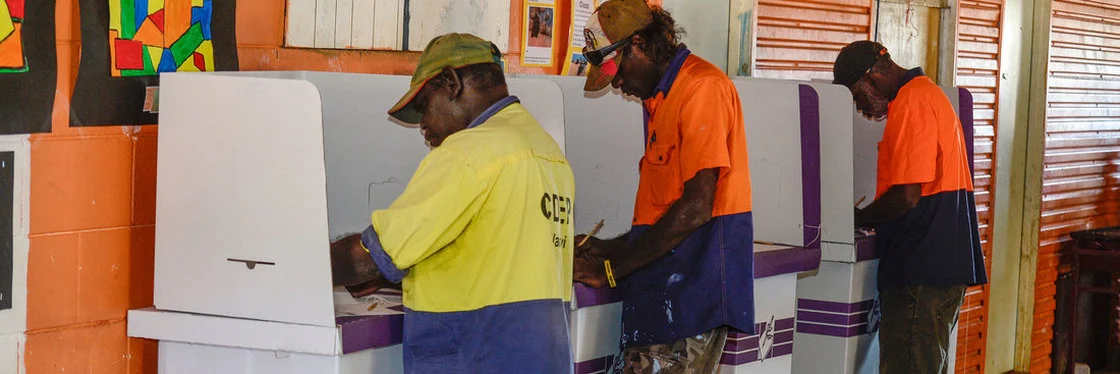The right to vote survives incarceration
Roach v Electoral Commissioner (2007)
Facts of the case
Vickie Lee Roach was convicted in Victoria in 2004 on charges relating to a robbery and seriously injuring a man when she crashed into his car while being chased by police. She was sentenced to a total of six years jail with a four-year non-parole period.
In 2006 the Commonwealth Electoral Act 1918 was amended by the Howard Coalition Government to prohibit all imprisoned people from voting in federal elections. Before this, only prisoners serving a sentence of more than three years had been excluded from voting and were ‘disenfranchised’.
Roach was disqualified from voting and decided to challenge the constitutional validity of both the blanket ban, and the ban for sentences over three years.
Vicki Lee Roach. Source: © Jonny Weeks, the Guardian Australia
The Honourable Murray Gleeson AC, QC (Chief Justice from 1998-2008). Source: High Court of Australia
Background to the case
This was a constitutional case. The validity of amendments to the Commonwealth Electoral Act 1918 (Cth) were tested in relation to the Constitution.
Only six judges sat as Justice Callinan was due to retire before the case could be finalised.
After the 2004 election the Coalition Government had a majority in both Houses of Parliament. They were able to pass legislation without much debate or compromise.
The High Court had to decide whether the amendments to the electoral laws were unconstitutional.
Vickie Lee Roach was just nine years old when she started running away from her foster family. Removed from her Aboriginal mother in what is known as the stolen generation at just two, Vickie felt powerless and out of place most of her life. She had turned to a life of drugs and petty crime.
Between 1976 and 2003 Roach amassed a number of convictions and was regularly in and out of jail. While in prison in 2004 she completed a master’s degree in professional writing and studied for a PhD. She has written poetry and a novel and was considered a “peer educator” at the jail.
Did you know?
- Unlike other nations, there is no express (written) right to vote in Australia’s Constitution. But the right is implied in the requirement in sections 7 and 24 of the Constitution that the Houses of Parliament be ‘directly chosen by the people’.
- ‘Prisoners who are citizens and members of the Australian community remain so. Their interest in, and duty to, their society and its governance survives incarceration.’
- Majority judgment, Roach v Electoral Commissioner (2007)
- Voting is not just a right in Australia, but a duty. Unlike in most other countries, it’s compulsory here.
- In other parts of the world, including many states in the USA, a person who has served a prison sentence can never vote again.
Chief Justice Gleeson’s bench. Source: High Court of Australia




